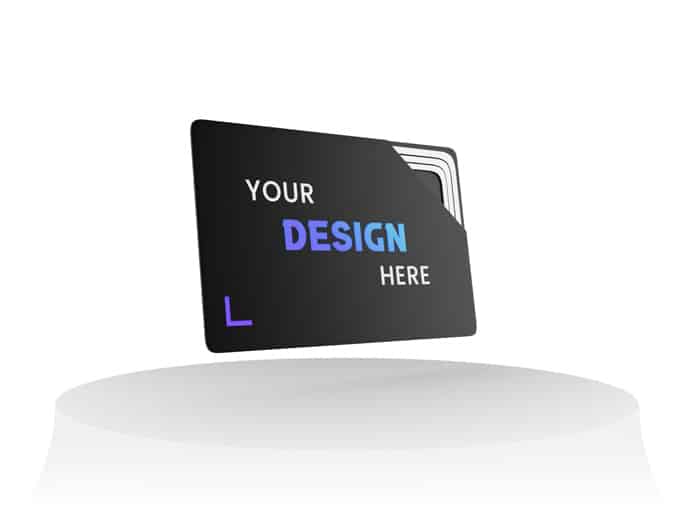
How can digital business cards strengthen your online presence?

Digital business cards were born as a contemporary response to the need for a strong online presence. In a world where business interactions are increasingly taking place digitally, especially with the emergence of social networks, these cards offer an innovative platform for merging the effectiveness of traditional cards with the power of social media.
In the fast-moving world of digital business interaction, digital business cards represent more than just a transition. They represent an essential evolution to adapt to an ever-changing business landscape, offering many advantages over traditional paper business cards.
The advantages of digital business cards over traditional ones
Accessibility and practicality
Digital business cards transcend physical limitations. Equipped with QR codes, they can be accessed efficiently and instantly, allowing data to be transmitted with a simple click, eliminating the need for physical transport or storage. Not only do digital business cards enable greater accessibility, they also promote business connectivity without geographical constraints, and in complete security.
Rich content
Unlike traditional business cards, on which written information is succinct, often due to lack of space or legibility, the new digital business cards can incorporate a wide range of information, from classic contact details to direct links to online portfolios, video demonstrations or even recommendations. The traditional business card has limits that can be reached more quickly than digital cards, and this wealth of content offers a more complete and engaging presentation than a limited paper business card.
Ecology and sustainability
In a world where ecology and the environment are central concerns, the arrival of the digital business card is a real asset. Reducing the use of paper, digital business cards are in fact part of a more eco-responsible approach. In particular, they help reduce paper waste, on which traditional business cards depend for their manufacture, reinforcing an ecological and sustainable commitment by avoiding massive deforestation and the use of environmentally costly energy.
Consolidation of online presence
Digital business cards also play a key role in merging the physical and virtual worlds. They offer a direct gateway to necessary information, such as social profiles, enabling rapid follow-up and ongoing interaction, even beyond the initial meeting. They are also designed to encourage discussion, share content and maintain dynamic, flourishing professional relationships.
Interactions on social media also amplify the reach of digital business cards. Every share, like or comment increases visibility, extending their impact far beyond the initial contacts.
Easier contact follow-up
Digital business cards revolutionize contact tracking by simplifying the management and accessibility of key information. By condensing essential business details into digital format, these cards enable instant sharing via a variety of channels, including messaging applications and social networks.
Digital cards often incorporate direct links to online profiles, QR codes for quick access, and can be easily updated. This is to avoid having to invest in a new business card when data changes. Thanks to their digital nature, these cards integrate easily into contact management tools, simplifying interaction tracking and promoting fluid, efficient communication. Thanks to integrated tools, interaction tracking becomes transparent and simplified. Functionalities such as view or engagement notifications enable effective contact tracking and appropriate follow-up opportunities.
Efficiency analysis
Digital business cards simplify effectiveness analysis thanks to their traceability and ability to provide actionable data. By integrating tracking functionalities, these new business cards make it possible to measure contact engagement and interaction. Information such as the number of clicks on links, online profile views or messages exchanged via the digital business card offer key indicators for assessing the effectiveness of business interactions.
This quantitative data can be used to analyze contact behavior, enabling us to adapt follow-up strategies and maximize the effectiveness of networking or marketing efforts.
Optimizing networking strategies
By leveraging analytics data, it becomes possible to fine-tune professional networking strategies. This information provides a better understanding of contacts’ preferences and interests, facilitating more targeted and relevant interactions.
By integrating social media, digital business cards go beyond the limits of conventional physical cards. They offer infinite possibilities, are durable and interactive, and propel online presence, while simplifying the tracking and analysis of business contacts. What’s more, optimizing professional networking strategies becomes possible thanks to the exploitation of analysis data. Understanding the preferences and interests of contacts enables more targeted and relevant interactions, reinforcing the quality of established professional relationships.
In short, digital business cards offer new, measurable perspectives on interactions, making it easier to assess their impact, and enabling ever more effective, quality networking.
Savings for professionals
Digital business cards also offer significant savings for professionals, thanks to a system that enables them to be updated quickly and efficiently. Unlike traditional cards, which have to be reprinted each time an address is changed, for example, digital cards offer genuine reliability and ease of information change.

In short, digital business cards are much more than a simple business contact tool. They embody an evolution towards an instantaneous digital world, rich and varied content, while making a significant contribution to an eco-responsible approach. Their integration into the professional world promises a future where interactions will be even more fluid, relevant and focused on lasting relationships, opening the way to new opportunities and collaborations.
Written by Camille BODET
The digital business card is a real ally for professionals wishing to promote their business effectively and instantly. In the...Lire la suite
VKARD is an innovative and effective solution to help all professionals stand out from the crowd and reinforce their brand...Lire la suite
If you prepare properly for a job interview, you'll have every chance of winning over the recruiter and getting the...Lire la suite
LinkedIn is a world-renowned business platform, and for good reason! Thanks to its many networking options, LinkedIn is the tool...Lire la suite
Find out how Leexi AI optimizes the management of videoconferences and business calls, saving time and improving efficiency.
In the professional sphere, it's vital to know how to convey certain strong values in order to stand out and...Lire la suite
Mastering the art of conversation is a real asset! By mastering the subtle art of conversation, you'll be able to...Lire la suite
Are you taking part in a trade event and want to do everything you can to make a good impression?...Lire la suite
CRM (Customer Relationship Management) represents a genuine corporate strategy for managing business contacts. This popular tool for professionals is in...Lire la suite
At a time when the professional world is in a perpetual state of competition, we might wonder what place altruism,...Lire la suite















